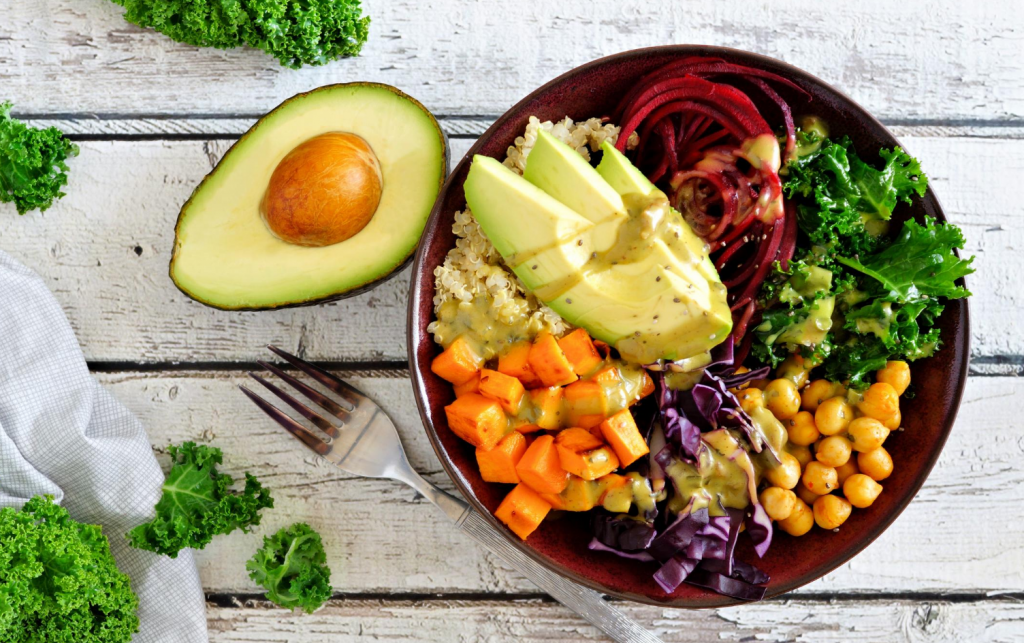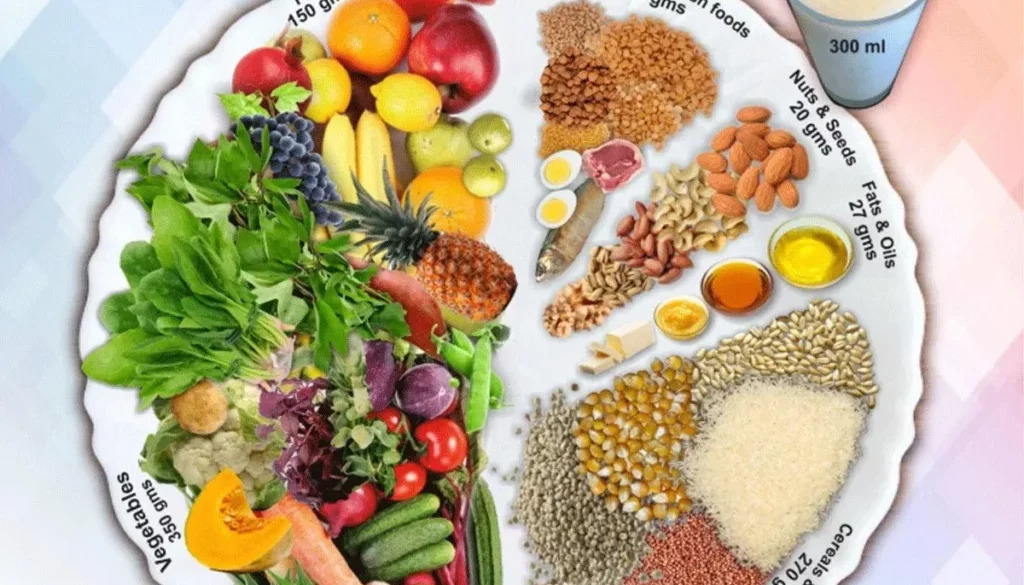The Ultimate Guide to Balanced Nutrition
Do you find yourself constantly bombarded by conflicting information on what constitutes a healthy diet? With so many trendy diets and quick-fix solutions out there, it’s easy to get lost in the chaos. However, there’s a reason why experts emphasize the importance of balanced nutrition.
In this comprehensive guide, we will delve into the core principles of balanced nutrition and equip you with the knowledge needed to make informed food choices. Get ready to embark on a journey towards nourishing your body and fueling a healthy lifestyle!
The Basics of Balanced Nutrition
When it comes to balanced nutrition, it’s all about nourishing your body with the right combination of nutrients, in the right proportions. This means incorporating a variety of foods from different food groups, ensuring you get a balanced blend of proteins, carbohydrates, fats, vitamins, and minerals.

The Building Blocks: Macronutrients
To lay the foundation for balanced nutrition, let’s explore the three macronutrients that form the backbone of a healthy diet:
- Carbohydrates: Often dubbed as the main source of energy, carbohydrates are found in grains, vegetables, fruits, and legumes. Embrace complex carbs like whole grains and fiber-rich foods, as they provide sustained energy and keep you feeling fuller for longer.
- Proteins: Essential for cell maintenance and repair, proteins are present in lean meats, poultry, fish, legumes, and dairy products. Opt for lean sources of protein to keep your diet low in saturated fats.
- Fats: Contrary to common belief, not all fats are bad for you. Incorporate healthy fats found in nuts, seeds, avocados, and olive oil into your diet. These fats support brain health, aid in vitamin absorption, and help maintain healthy skin.
Nutrient Powerhouses: Vitamins and Minerals
While macronutrients provide energy and perform crucial functions, they are not complete without the support of micronutrients. Vitamins and minerals play a vital role in maintaining overall health and well-being. Here are some essentials you should include in your diet:
- Vitamin C: Found in citrus fruits, berries, and leafy greens, vitamin C aids in boosting the immune system and promoting collagen production for healthy skin.
- Calcium: Strengthen your bones with calcium-rich foods like dairy products, tofu, and leafy green vegetables.
- Iron: A crucial component of hemoglobin, iron can be obtained from sources such as lean meats, fish, poultry, and legumes. It helps transport oxygen to the cells and prevents fatigue.
Implementing Balanced Nutrition in Your Everyday Life
Now that we’ve covered the basics, let’s explore some practical tips for incorporating balanced nutrition into your daily routine:
- Plan your meals: Take the time to meal plan and prepare your meals ahead of time. This helps you make conscious choices and avoid reaching for unhealthy options on a whim.
- Fill half your plate with vegetables: Aim to include a variety of colorful vegetables in every meal. Not only do they provide essential vitamins and minerals, but they also add flavor and texture to your dishes.
- Switch to whole grains: Replace refined grains with whole grain options like brown rice, quinoa, and whole wheat bread. They are higher in fiber and nutrients, which can aid in digestion and overall health.
- Control portion sizes: It’s not just about what you eat but also how much. Use smaller plates and listen to your body’s hunger and fullness cues to prevent overeating.
- Stay hydrated: Water is essential for numerous bodily functions. Make sure to drink an adequate amount of water throughout the day to maintain proper hydration.

Creating a Balanced Plate
One effective approach to balanced nutrition is creating a balanced plate that includes all the necessary nutrients. Here are some guidelines to follow:
Importance of Portion Control
Controlling portion sizes is crucial for maintaining a healthy weight and preventing overconsumption. Use smaller plates and bowls, read food labels for portion sizes, and be mindful of serving sizes when eating out.
Including Fruits and Vegetables
Fruits and vegetables are rich sources of vitamins, minerals, and fiber. Aim to include a variety of colorful fruits and vegetables in your daily meals. These can be eaten raw, steamed, sautéed, or incorporated into dishes.
Choosing Lean Proteins
Opt for lean sources of protein, such as skinless poultry, fish, beans, lentils, and tofu. These provide essential amino acids without excessive saturated fat. Limit the consumption of processed meats and fatty cuts of meats.
Incorporating Healthy Fats
Include healthy fats in your diet, such as avocados, nuts, seeds, and olive oil. These fats provide important nutrients and can help reduce the risk of heart disease when consumed in moderation.
Meal Planning for Balanced Nutrition
Planning your meals ahead of time can help ensure a balanced and nutritious diet. Consider the following tips:
Planning Ahead
Take some time each week to plan your meals. This allows you to incorporate a variety of foods and ensures that you have the necessary ingredients on hand.
Balancing Macronutrients in Meals
Each meal should ideally include a balance of carbohydrates, proteins, and fats. Aim to fill half of your plate with vegetables or fruits, one-fourth with lean protein, and one-fourth with whole grains or starchy vegetables.
Ensuring Variety in Food Choices
Variety is key when it comes to a balanced diet. Include different types of fruits, vegetables, whole grains, and proteins to get a wide range of essential nutrients.
FAQs: Ultimate Guide to Balanced Nutrition
Q: Are all fats unhealthy?
A: No, certain fats like monounsaturated and polyunsaturated fats are beneficial for your health, while saturated and trans fats should be consumed in moderation.
Q: Can I meet my nutritional needs through supplements alone?
A: While supplements can be helpful in addressing specific nutrient deficiencies, they should not replace a balanced diet. Whole foods provide a wide range of nutrients that work synergistically to support overall health.
Q: Is it necessary to count calories for balanced nutrition?
A: Counting calories can be a useful tool for weight management, but it is not the sole indicator of a balanced diet. Focus on nutrient-dense foods and listen to your body’s hunger and fullness cues.
Conclusion
In conclusion, balanced nutrition is essential for maintaining optimal health and well-being. By understanding the importance of macronutrients and micronutrients, creating a balanced plate, and incorporating mindful meal planning, you can make significant improvements to your diet. Remember to make gradual changes, listen to your body, and enjoy the process of nourishing yourself. Taking small steps towards balanced nutrition can have a profound impact on your overall health and longevity.
Also Read:
The Ultimate Guide to Glowing Skin: Tips and Tricks



